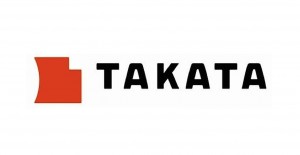
A new report suggests that it could cost Takata as much as $24 billion to resolve its airbag recall.
With safety regulators considering whether to order the recall of all Takata airbags using ammonium nitrate, a new report suggests the Japanese supplier could be on the hook for as much as $24 billion in repair costs.
That astronomical bill has investors running for the exits and, some observers warn, could finally break Takata financially.
More than 50 million Takata airbags have already been recalled, the majority of them in the United States, due to a defect that can cause them to explode with too much force when triggered by a crash. At least 10 deaths have so far been linked to the problem. But the number could grow to more than 287 million airbags, according to the Bloomberg news service.
Initially, the problem appeared to be the result of a manufacturing defect at two North American factories operated by Takata, and seemed to be limited to vehicles operated in high humidity areas like Florida and Puerto Rico. But a recent study commissioned by a consortium of automakers cited a third issue: the highly explosive ammonium nitrate that Takata has long used in its inflators.
(Takata lied to conceal airbag problem, Senate panel finds. For more, Click Here.)
When triggered, the material produces a hurricane of hot gases, enough to burst an airbag out of its hiding place and fill it long enough to product occupants. But it now appears that ammonium nitrate can turn unstable over time, meaning the older the vehicle the higher the risk of an airbag malfunction.
How to respond to the study has been a subject of debate among both automakers and automotive regulators. The biggest concern is what to do if all the Takata inflators using ammonium nitrate – about 287.5 million were to be recalled. The industry is struggling to find replacement components for the airbags already recalled.
(Click Here for details about the cause of Takata’s exploding airbags.)
Toyota and a number of other carmakers have begun turning to alternative suppliers since Takata can’t provide enough parts on its own. But the National Highway Traffic Safety Administration recently had to waive a deadline for BMW because a secondary supplier’s inflators proved to have their own problems.
It’s unclear precisely how much even the existing recalls will cost, though most analysts have put the figure in the range of around $3.5 billion. That figure could explode faster than a faulty airbag if manufacturers were ordered to replace every airbag using an ammonium nitrate inflator supplied by Takata. According to Bloomberg, the cost could hit $24 billion if the supplier were stuck with the entire tab.
Even the smaller figure dwarfs the embattled suppliers assets which were down to $1.3 billion at the end of 2015. Takata’s stock has plunged from a 52-week high of 1,661 Japanese yen to just 438 yen at the close of Tokyo trading on Thursday. That means the entire company is now valued at just more than $300 million.
(To find out why Americans can expect more auto recalls in the future, Click Here.)
Complicating matters, Takata was hit with a $70 million fine by NHTSA, a figure that could grow substantially if it doesn’t live up to promises to reform its safety processes. The supplier is also under investigation by the U.S. Justice Department and could face additional penalties and even criminal charges.
